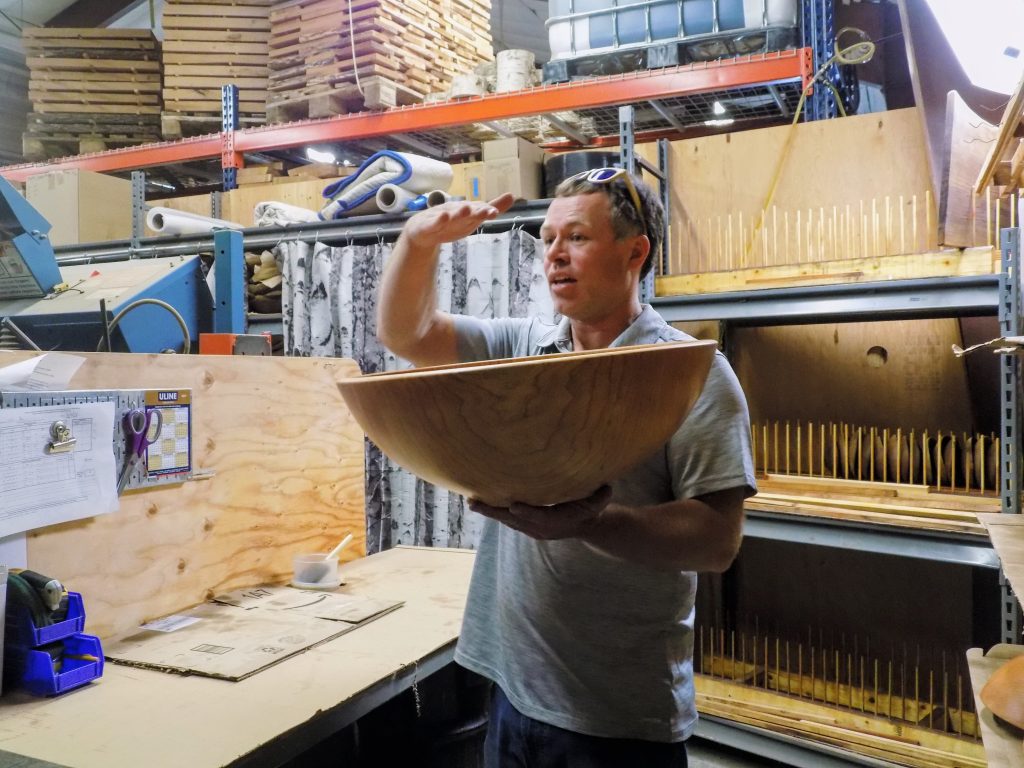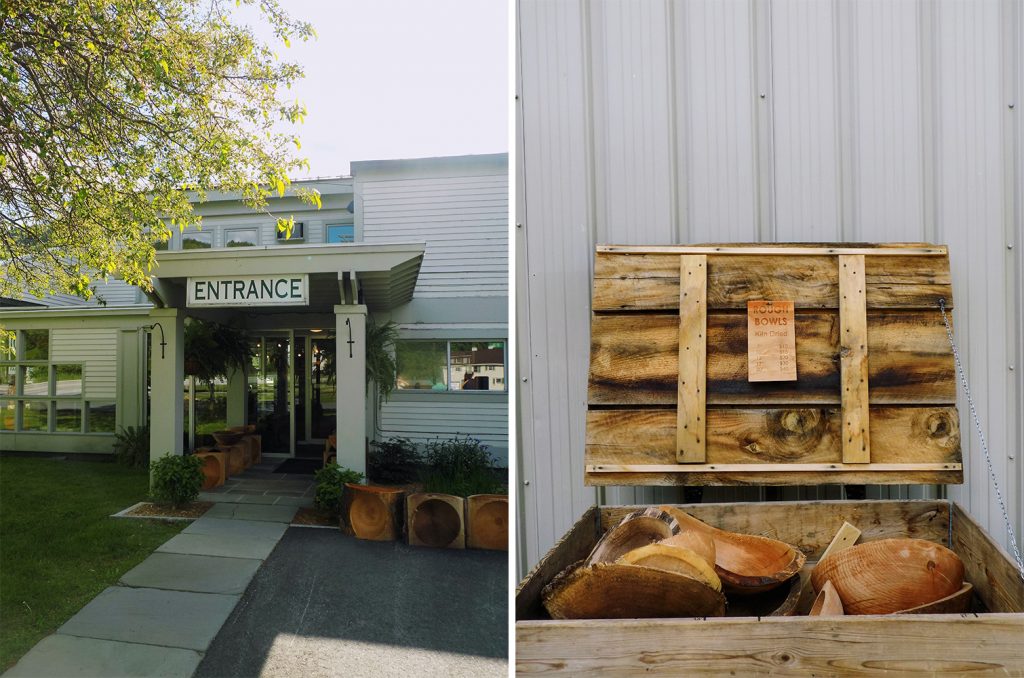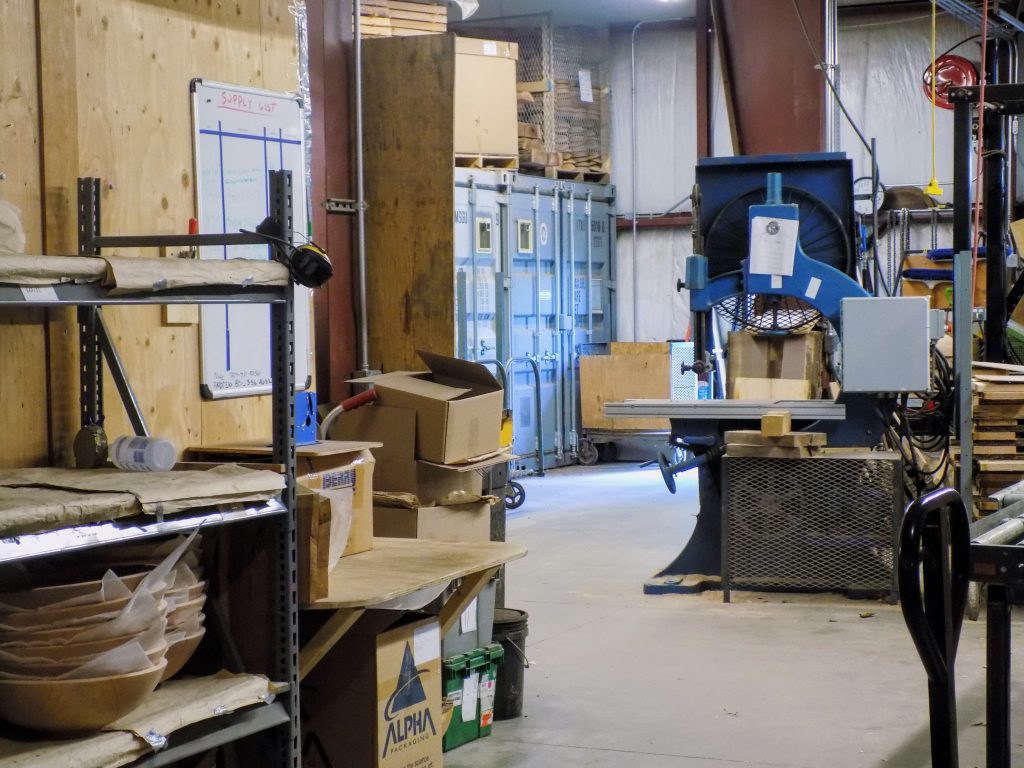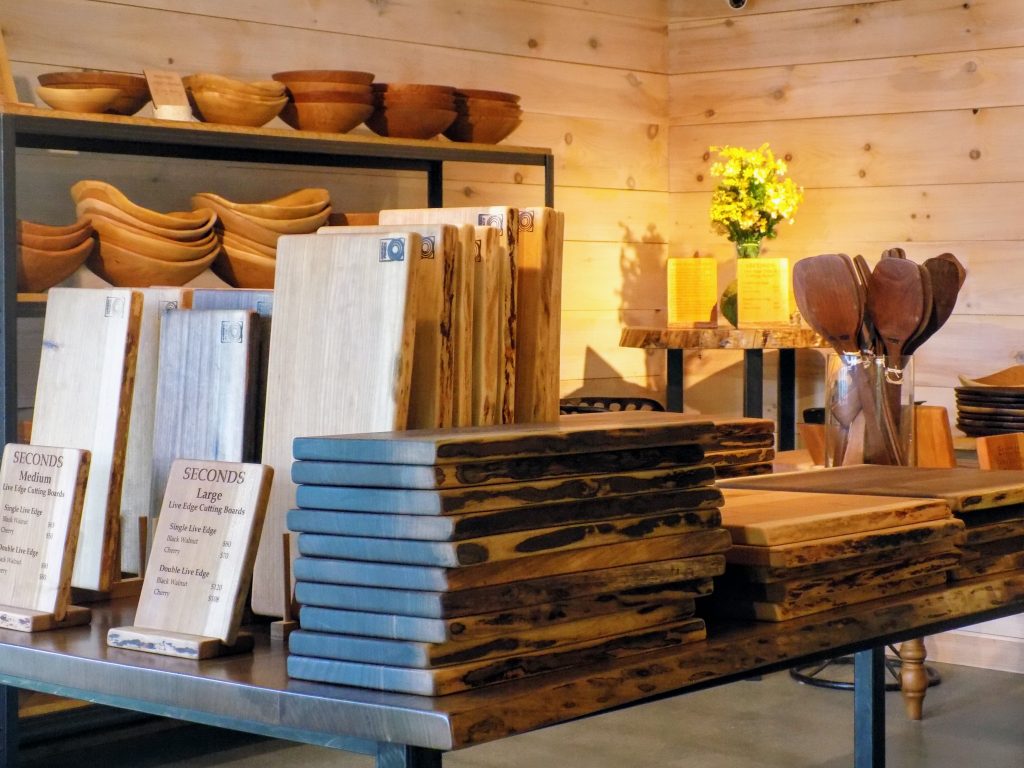Studio Visit: Andrew Pearce Bowls
Five years after opening, they’re now the world’s largest producer of hand-turned wooden bowls

Just off Route 4 in Taftsville, Vermont, in the shadow of the state’s lush greenscape, Andrew Pearce converts rugged, earthy trees into ornate bowls and kitchen accessories. His father, Simon Pearce, owns a self-titled operation, too—a company that makes glassware, glass accessories and other home goods. Admittedly, Andrew learned a lot of what he knows now from his father, a goldmine of a mentor.

“It wasn’t an accident that I named my business Andrew Pearce and his is Simon Pearce,” he tells us as he guides us into the workshop in the back of his building. “People know he does great stuff and they come in here and they go, ‘Oh, this is great too,’ and they shop with us the same way they do with him.”

The two are situated a few miles apart in a sliver of the nation that acts as a hotbed for handcrafted goods. Known mostly for their beer and cheese, the state happily harbors a bounty of beloved but lesser-known treasures. Pearce’s wooden bowls certainly fall under that umbrella. Using about 365 trees a year, his company crafts delicate vessels of all size and hue for a loyal audience—one that stretches far beyond the confines of his medium-sized retail store, which sits in front of the workshop.
“I love wood. I love living in Vermont. I like making things. I like building machinery. This [woodworking business] kind of hit all of the buckets for me,” he says.

Pearce admits that he’s infatuated by the entire process. That includes the machinery that his staff uses to craft the bowls. Pearce, unhappy with the mundanity of machine-made wooden bowls, designed tools and machinery that automates the tedious tasks and hands back control to woodworkers when the finer details are set to be carved out. Because the bowls are still carved by hand, Pearce’s stock has a refined, delicate look and feel. As such, the demand is sky-high.
“50% of our business comes from our retail store,” he explains. The other half is comprised of wholesale orders and sales from their website. He feels that being based in Vermont certainly lends to his business.

“Vermont is very uniquely placed geographically and philosophically, and everything about the way that we do stuff, we’ve kind of ended up being like the Napa and Sonoma Valley of California—that’s kind of what Vermont has become for wood and handcraft and handmade,” he says. “We have New York and Boston within driving distance and, [the people there], they all want something unique and handmade and made in the United States. And they love being able to meet people who make stuff. They like meeting the artisans. I walk through my shop all the time. People have a lot more interaction with folks here.”

Lumber arrives at the facility every three weeks. From the delivery, Pearce aims to pull as much inventory as possible. Cutting from both sides, using the middle to make cutting boards and tabletops and ultimately selling the “shells” out front, he promotes sustainability on all fronts. He even established a partnership with Shelburne, Vermont-based One Tree Planted to offset the trees he uses by planting one for every one used.
In the retail store, guests shop between eager customers copping an entire suite of Pearce-made products and a woodworker, behind a glass wall, crafting the incoming inventory. Willy, the woodworker on shift when we stopped by, leans in to craft the bowl’s underside. “Last year we made 15,000 bowls,” Pearce adds.

“We’re trying to increase that experience where the customer can see what’s happening, how it’s made and be involved,” he says. Touching upon the state’s booming beverage industry, he says, “The beer industry has been great about being able to do brewery tours and tastings and we just need to interact with the customer better and more frequently than we do now.”

“Everybody says now that the days of retail are ending because it’s all gone to the web and Amazon, but there’s a huge group of us up here that don’t sell on Amazon,” he explains. “We do it purposefully. We’re not doing this to make tons of money. We’re doing this because it’s our way of life and there’s a niche market in what we’re doing. The only thing I sell on Amazon are those bottles of wood oil. You want to make it easy for the customer to service the product—there’s nothing super unique about that,” he says, referring to the the wood oil. But, “There is something unique about this,” he concludes, lifting a bowl.
Images by Evan Malachosky












